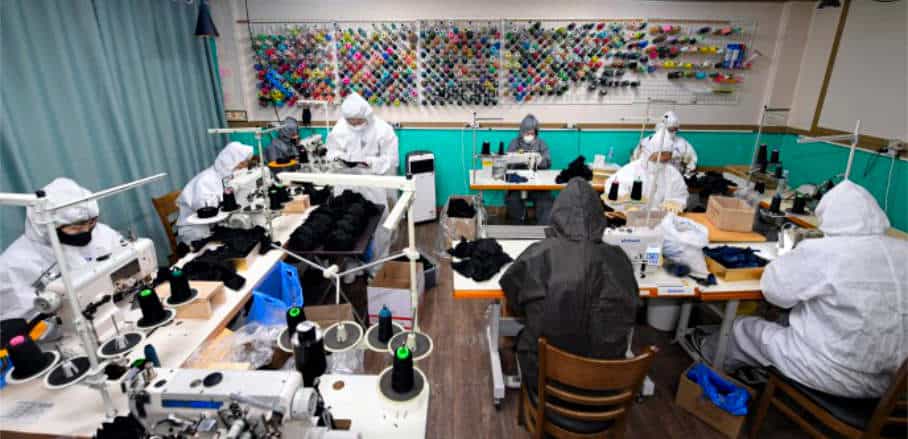Lifelong Learning and Participatory Governance: The Learning City Initiative
Cities have immense potential to foster capacities for lifelong learning, argues Raúl Valdés-Cotera from the UNESCO Global Network of Learning Cities.
The world is rapidly urbanising and over half of the global population is now living in urban areas. According to projections this figure will rise to 70 per cent by 2050. Across most high and upper middle-income-countries, around 80 per cent of the population live in urban areas already.
Local governments’ actions have an immediate impact on citizens’ chances for greater employment choices, greater prosperity, better infrastructure, better healthcare facilities, greater choice of education provision, lower levels of poverty, and cultural diversity. However, at the same time, they face enormous inequalities, hosting highly disadvantaged populations who live in densely populated neighbourhoods and/or informal settlements, have precarious employment, little, if any, financial security, and an already challenged access to education, healthcare, and other services.
Cities are vital in responding effectively to the challenges of emerging economic, technological, environmental, and social changes, underlining the need to foster capacities for adaptation, creativity and, most importantly, learning that continues throughout life. Fostering these capacities through lifelong learning is at the heart of the UNESCO Global Network of Learning Cities.
What is the UNESCO Global Network of Learning Cities?
In 2012, the UNESCO Institute for Lifelong Learning established the UNESCO Global Network of Learning Cities (GNLC). Today, 229 members from 64 countries are engaged in developing holistic and integrated approaches to lifelong learning. The network promotes policy dialogue and peer learning among its members, fosters partnership, provides capacity-building, and develops instruments and resources to encourage and recognise progress in building learning cities.
While cities differ in their cultural composition, as well as in their social, political, and economic structures, many characteristics of a learning city are common to all of them. Learning cities facilitate lifelong learning for all; they help to realise the universal right to education, promote education for sustainable development, establish flexible learning pathways, and support skills development for employment. Learning cities put people in the centre of development and involve the different voices of society to promote and implement education and lifelong learning for all – and, with this, facilitate individual empowerment and social cohesion, economic and cultural prosperity, and sustainability.

The TTASUM Mask-Sharing Project © Osan City
Why are Cities an Ideal Place for Lifelong Learning?
Although in many countries, municipal governments have only some or no jurisdiction over the formal schooling system, they are usually responsible for a great number of non-formal learning spaces. Cities have been able to find diverse ways of engaging a wide range of partners in the learning pathways of their citizens such as community learning centres, libraries, and museums, and they often support various community learning initiatives such as the learning festivals.
They engage with partners from a variety of sectors for participatory governance, to design, develop, and implement non-formal and informal learning programmes, ensuring that education continues and learning programmes are available to those who need them most, paying special attention to the involvement of vulnerable groups.
Their work implies the involvement of relevant sectors of society with an understanding of lifelong learning, which are not only part of the daily life and work context of all citizens, but ensures to create a synergy between government and diverse partners from a variety of sectors.
Resilience Through Learning: Examples from Korea and Poland
The UNESCO learning city members have showcased expertise and adaptability when it comes to learning for health and well-being in the current context of the COVID-19 pandemic. Learning cities have proven that they are up to the challenge. Many member cities have demonstrated their resilience in responding to the challenges of the COVID-19 crisis relying on a lifelong learning approach.
For example, Osan City in the Republic of Korea launched the TTASUM Mask-Sharing Project, a local initiative, in March 2020. ‘TTASUM Mask’ is an abbreviation for a mask to metaphorically share warm breath, intended to create a warm culture of companionship by raising and sharing citizens’ consciousness of collective endeavour. Despite quarantine and social-distancing measures being implemented in response to the pandemic, concerns of a mask shortage were growing in the community. This project, wherein local citizens are provided with filter-replaceable cotton masks, was the municipal government and partner’s response.
Another example is the City of Gdynia, Poland, which has formed partnerships with local volunteer groups and non-governmental organisations to maintain regular contact with vulnerable families and attend to their needs. Neighbourhood centres in the city have established online meetings, activities, and integration initiatives. Local residents use these platforms to access hygiene information and offer support, DIY (“Do It Yourself”) ideas, and more.
Clearly, partnership is necessary to navigate the current crisis and conceptualise responsive solutions. The complexity of the challenges will continue to increase – and participatory governance will help citizens around the world to understand them and take appropriate action.
- Lifelong Learning and Participatory Governance: The Learning City Initiative - 21. September 2021
